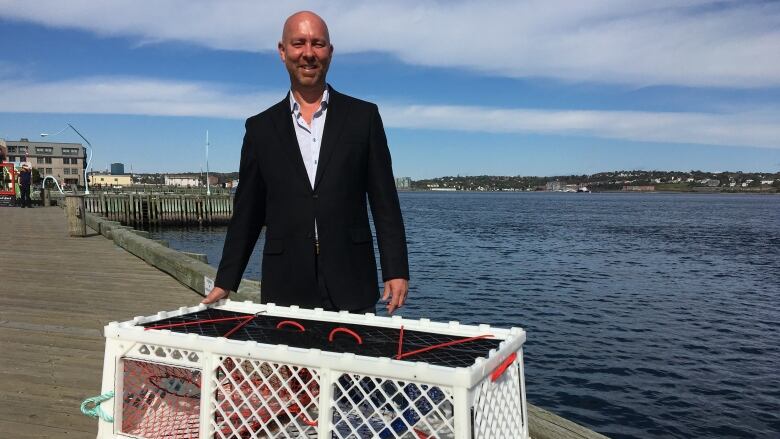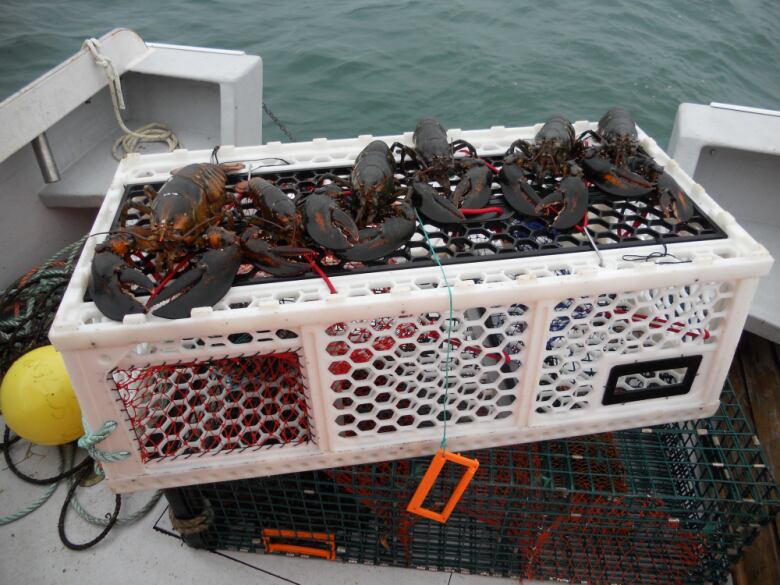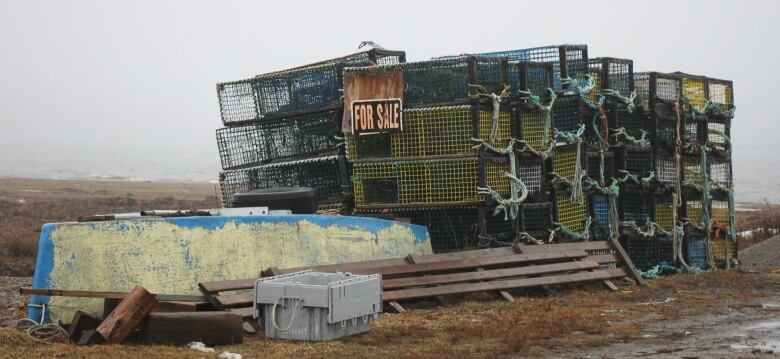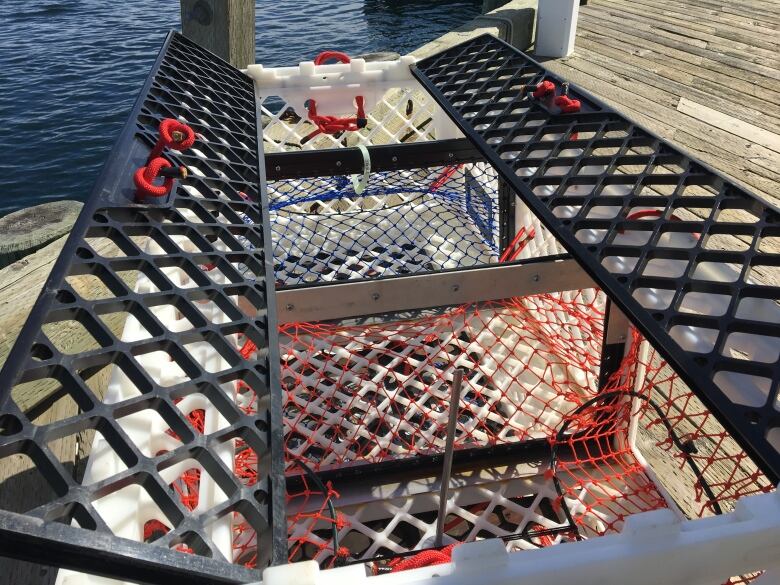Yarmouth businessman creates 'Mercedes of lobster traps'
New traps are made of plastic instead of wire and are recyclable

A new company in Yarmouth, N.S., has designed a recyclablelobster trap made from plastic that it sayshas a longer life than traditional wire devices and stacks easily.
Scott Dauphinee,managing director ofThe Lobster Trap Company, said they'vebeen working on designing and testing the traps over the last year and a half.
LasTrapisthe "Mercedes of lobster traps," he said.

"Lobster fishing gear has not really changed ... the actual material used, in almost half a century," Dauphinee said.
"This is a new innovation, it's a new way of doing things, but still using some of the traditional methods."
Longer life span, lower centre of gravity
Dauphinee said his traps have a lower centre of gravity tokeepthem on the ocean floor,weigh anywhere from 45 to 70 pounds and are expected to last at least 10 years, but potentially longer if taken care of properly.
He also said they're sturdy and jumped onone of the traps to prove his point.
What the traps are made out ofis a trade secret,Dauphineesaid.
"Thevirgin material that goes into the original production is very important to us, so we want that trap back," Dauphinee said, adding that in some cases they'll be able to repair traps instead of having to fully replace them.
Current traps expensive, fisherman says
ThomasAmirault, vice-president of theColdwaterLobster Association inYarmouth, has been fishing lobster for 30 years.
He said traps are expensive and costroughly $150 to $200 apiecefor current traps on the market. He said fishermenneed anywhere from 50 to 100 traps per season.
"[The new traps] look like they could be feasible. The main thing is going to be: do they catch lobsters, number one, and the second is going to be cost," Amirault said.

He also said fishermen are superstitious, even with details like the colours of the trap and the nets inside.
"I think the minute somebody catches a lobster with one [of the new traps] and proves that it works, and if it even appears to be easier to work with or more efficient, has a longer life in it, then yeah, people will be receptive to it," Amiraultsaid.
"But until then I think people are going to kind of poke at it with a stick."
Price still being determined
Dauphineesaid the price is yet to be determined.
As for whether the new trapswork, Dauphinee saidtesting is being done with the Department of Fisheries.

"What we did is set up a comparison with a traditional trap and one of our lobster traps. We kept the variables all the same: we used the same bait, the same quantity of bait, the same water depth," he said.
While he said he couldn't disclose the exact results, "We were very pleased and surprised by what we found."
Recycling incentive program
Amiraultsaid he also has concerns about the traps being made of plastic, which Dauphinee said is something they've already heard feedback about.
"What people don't realize is what's happening to the traps that are already in circulation, and I'd rather not comment on that.
"But the fact that we're making a trap that is recyclable, and offering an incentive package for the fishermen to bring that back to us and offer [a] rebate to them for a new product is very important to us," he said.
The company is currently in negotiations with Dalhousie University to do more specialized testing of the traps. After that, they could be on the market by mid-to-late 2018.












_(720p).jpg)


 OFFICIAL HD MUSIC VIDEO.jpg)
.jpg)



























































































